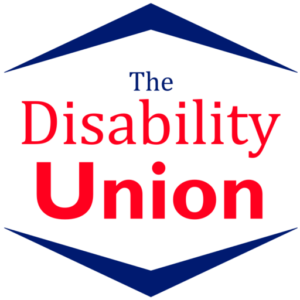
Growing up, most people were taught “please and thank you are the magic words!” and other basic manners. In society today, there are certain norms you’re supposed to adhere to, such as saying “please” and “thank you”. Basic etiquette allows us to live in groups with few problems. But do you know basic etiquette when interacting with someone with a disability? Did you know there was disability etiquette? Hopefully, this article can answer any questions you may have.
The Golden Rule
The biggest thing, above all else, is to treat people how you would want to be treated. They’re people, not aliens. You’re not always going to say or do the right thing. Mistakes happen, and they happen to everyone. As long as you’re not intentionally going against any boundaries and you apologize when you’re corrected, you should be fine. Messing up is how people learn.
Respect Their Identity
Some people prefer person-first language, while others prefer identity-first. Respect how someone wants to identify and steer clear of terms they don’t like. This is different for everyone, so asking what language they prefer to use is your best bet. Some people might not have a preference except for a few words they dislike, while others are very specific.
Privacy
Nobody owes you an explanation as to why they are in a wheelchair. The reason someone who looks able-bodied has a service dog is none of your business. Details about one’s disability are personal and private, unless offered up freely. Asking such questions often comes from a place of curiosity, but it’s rude, especially if you’re a stranger to the person. Knowing what someone’s diagnosis is shouldn’t change your interaction with them, so why ask?
Speak to The Person, Not the PCA
A PCA is not a disability translator. If you’re talking with someone with a disability, address them not the PCA. Same goes for someone who is Deaf/Hard of Hearing; speak to the person not the interpreter. People with disabilities are able to communicate, we just might do it a bit differently. Refusing to speak to them directly is infantilizing and demeaning.
Be Patient
Whether it be communicating or moving, be patient. If someone has a stutter, it’s rude to interrupt and try to finish their sentences for them. If someone slurs their words and you didn’t understand, either ask them to repeat or say what you understood. They know they have a hard time speaking, they’re used to repeating themselves.
If someone has mobility issues and takes longer to get from one place to another, don’t get annoyed that they’re taking too long. If someone can do something by themselves, they will. Being independent is important, even if it takes longer sometimes.
Ask Before You Help
This is the one that a lot of people don’t seem to understand. Ask if the person needs help, and only help after they say yes. Even then, ask how you can help. There have been many times where I’ve been “helped” and didn’t need it, which made things worse. We know our limits and what we’re able to do. You might just be trying to be nice, and that’s great! Thank you for asking and being nice. But PLEASE wait for us to answer first. You could end up making things harder accidentally.
Respect Personal Space
Our wheelchairs, walkers, and any other equipment are considered extensions of our bodies. Refrain from resting, leaning, moving, or touching someone’s equipment without permission. Leaning on someone’s wheelchair is the same as leaning on someone’s shoulder, so if you wouldn’t do that then please don’t lean on my chair.
These machines and equipment are also extremely expensive, and leaning on it the wrong way could damage it. If our equipment brakes, we could be unable to do things we need to do, and repairs are costly. Not to mention, repairs can take time–I’ve been without a chair for over two weeks before, stuck in my home.
Clearly Announce and Introduce Yourself
If someone is visually impaired, or can’t turn their head to look at you, don’t greet them with “hey, [name]!” Instead, make it known who is saying hello: “Hey, [name], it’s [you]!” If the person is Deaf/Hard of Hearing, tap them on the shoulder or wave your hand to get their attention. Speak clearly, slowly, and expressively so they can read your lips if they know how. Knowing who someone is speaking to is important for context, and can make conversations easier.
Relax
Don’t worry about colloquialisms like “see you later” or “listen to this”. They aren’t offensive, and most people have a sense of humor about this. If you’re unsure about saying or doing something wrong, ask. Remember that people with disabilities are human, and like all humans, we are all different. Treat us with respect and we will do the same.


